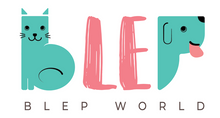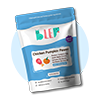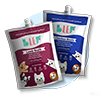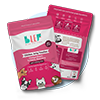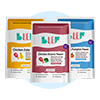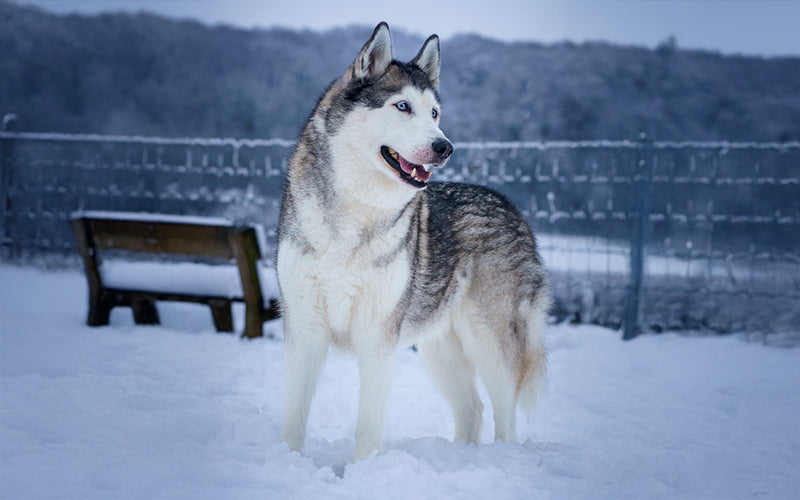The Shih Tzu is a beloved toy dog breed that’s kept as a pet in numerous households, especially because of their adorable appearance and small size. They’re well adopted for smaller spaces like apartments and need a basic amount of physical exercise, making them a good choice for first-time pet parents. However, don’t be fooled by their size; they pack a punch in a little package. Shih Tzus have big personalities and can be quite playful and stubborn. They’re also very smart and are great with children when socialised early.
The history of the Shih Tzu breed
The Shih Tzu is a Tibetan dog breed that has been around for centuries. It is thought that they came from the interbreeding between the Pekingese and the Lhasa Apso. Shih Tzus were bred to look like the lions in traditional oriental art and were strongly associated with Buddhism. In fact, their name also comes from the Chinese language word for ‘lion’.
They were prized possessions of the imperial rulers of the Ming Dynasty of China and worked as ‘alert dogs’ who would bark if anyone approached the home. They were first brought to Europe in the 1920s and 1930s and thereafter spread all over the world. After the Chinese Revolution of 1949, Shih Tzus almost went extinct. They came to be associated with wealth and excess in China and therefore were killed off en masse. Only a few were smuggled out, who are the ancestors of all Shih Tzus that are currently alive.
Nowadays, Shih Tzus are mainly kept as companion animals. However, they retain some of the traits of their ‘alert dog’ origins, so they can be quite loud and noisy.

Common health problems of Shih Tzu
Because of the breed’s popularity and the tiny number of ancestors from which all Shih Tzus originate, the breeding practices for these dogs have been very poorly regulated. This is why they have developed a number of hereditary issues and common health problems:
Breathing problems:
Shih Tzus have flat faces, so breathing issues are very common among them. Their nostrils are placed close together on their shortened muzzle, making it difficult for them to breathe through the nose. Worsening the issues are their elongated soft palate and narrow windpipe. This may make them struggle to sleep or exercise. They may also be prone to heat stroke and injuries to their trachea due to increased breathing effort. This is a genetic issue, so not much can be done. A low-carb diet will help keep their weight in check, which may give some relief.
Eye issue:
Shih Tzus are prone to eye issues due to a number of reasons. They have bulging eyes that get easily injured. Their eyes are covered with a lot of hair, which may cause scratches on the cornea. Shih Tzus produce excessive tears, which may crust around the eyes and cause infections if not cleaned regularly. Apart from these, they may also develop glaucoma and cataracts that may need surgical intervention. Food rich in beta-carotene, vitamin A, and omega-3 offers some protection against these issues.
Heart disease:
Heart issues like mitral valve disease are common in small breeds like Shih Tzus and can lead to congestive heart failure. Some ingredients that can promote heart health are lean proteins like chicken and fish, high-fibre veggies like sweet potatoes and carrots, and sources of omega-3 fatty acids like fish oil and flaxseed.
Skin and coat infections:
Because of their long double coats, Shih Tzus are very prone to matting and skin infections. They need to be brushed regularly to smooth out the knots and reduce some shedding over time. For a health coat, food rich in healthy fats like chicken, fish, eggs, fish oil, etc. is beneficial. Bone broths are also rich in collagen, making them great for coat maintenance.
What are the nutritional needs of Shih Tzus?
Shih Tzus are low-to-moderate activity dogs, so weight management is a big issue with them. They can get overweight easily, which may aggravate their usual problems: breathing may become harder, they may develop diabetes leading to a decline in eye health, their heart may get affected, etc. Therefore, a balanced, nutritious diet is very important for Shih Tzus:
Protein: Shih Tzus need lean, high-quality protein that is highly digestible. Their tummy can be quite sensitive, so quality becomes of utmost importance. About 20-30% of their diet should come from protein, and most of it from animal sources.
Fats: The long, luxurious coats of Shih Tzus need a lot of care, both externally and internally. They need a proportionate amount of healthy fats rich in omega-3 and omega-6 in their diet, from good sources like fish oil, flaxseed, chicken, etc. This kind of diet also helps with general skin health and dryness. About 8-16% of their food should be omega-rich fats.
Carbohydrates: Excess carbohydrates are bad for dogs, because they cannot digest all of them. Considering Shih Tzus already have sensitive guts, easily-digestible carbs like sweet potatoes, quinoa, pumpkin, etc. should be given to them. Too much starchy food may cause weight issues and indigestion.
Vitamins and minerals: For Shih Tzus, some vitamins and minerals are essential for good health. Vitamins A and E are needed for eye health and healing. Calcium and phosphorus are good for their teeth, which can also be a pain point for Shih Tzus. Apart from this, zinc can also be really beneficial for healthy skin and shiny coats.
Water: Shih Tzus are prone to dehydration and may be reluctant to drink water. However, water is very important for them because it regulates body temperature, and Shih Tzus are prone to overheating from their long coats. In this scenario, broths and wet food also become very helpful.

What to feed your Shih Tzu in India?
Shih Tzus have a long, thick double coat that is best suited for the colder climates. However, they’re a very popular breed in India, even in parts that are hot and humid. Therefore, some extra care is necessary to keep Shih Tzus at the peak of their health and well-being:
High-protein food for overall health:
Apart from building and maintaining muscles, protein is also a great source of vitamins, minerals, and fatty acids. These are essential for a Shih Tzu’s overall wellbeing. Protein provides nutrients like vitamins K, C, B-complex and D, as well as iron, zinc, selenium, and omega-3 fatty acids. Now, animal protein is what dogs need, even though many parts of India follow a vegetarian diet. We recommend giving them what they need to thrive. But, if not at all possible, a good balance of plant protein sources like paneer, quinoa, chickpeas, etc. and other supplements can also work.
Low-carb food for weight management:
We have a tendency to feed high-starch food like rotis made of wheat to our dogs in India. This can be harmful for breeds like Shih Tzus who have sensitive tummies and long coats that may make detecting allergies difficult. But, most importantly, Shih Tzus need to maintain a good weight so as to not stress their already stressed respiratory system. Weight management can lessen some of their breathing discomfort. Therefore, if rotis are to be given, we recommend giving them rotis made of ragi, bajra, oats, etc.
Bone broths for coat maintenance:
The luxurious coat of a Shih Tzu, long and double-layered, needs some extra care in the Indian climate. First and foremost, they need frequent brushing to detangle knots and prevent the hair from getting matted in the humid weather. Some shedding throughout the year is normal. But the collagen in bone broths helps in maintaining the quality and strength of the hair as well as in managing shedding over time. Fish oil, fatty fish, eggs, etc., also help in giving Shih Tzus a healthy coat.
Common food mistakes that Shih Tzu pet parents make in India
Giving human-food leftovers: Being a small dog breed, Shih Tzus can get full quickly. If they are primarily fed leftovers from human food, that can have some seriously negative consequences. First, the quality of leftovers is not good enough for Shih Tzus; they have sensitive tummies. Secondly, they need to derive a lot of nutrients from their diet to maintain a body that is essentially unsuited to large parts of the country. Deficiency can cause some serious issues for their vision and coat, both sensitive areas for Shih Tzus. Lastly, many human ingredients, such as excessive oils and spices, can harm their gut.
Feeding starchy food: Starchy foods are a big part of the diet for humans in India. While dogs have, over the years, learnt to digest starch, it is still not good for their systems. Too much starchy food can cause problems like obesity, diabetes, and gut issues. Obesity affects all parts of the body, diabetes can worsen their vision issues and skin health, and gut problems may cause a vicious cycle of nutritional deficiency.

Why is it important to feed human-grade food to your Shih Tzu?
India barely has any regulations regarding the making of ‘feed grade’ products. Which means it is difficult to say what exactly goes into making ‘feed grade’ dog food. It could be made with meat from long-dead carcasses, rotten veggies, artificial additives, sugar, etc., none of which is desirable for our pups.
‘Human grade food’ is a reassurance to pet parents that the food that their pet is eating is safe for consumption. With human-grade ingredients, there is some certainty that the meat and veggies used are like the ones that we humans eat in our regular lives, thus at least ensuring some safety and basic nutritional value. This is why feeding ‘human-grade’ food to your Shih Tzu is recommended.
Looking to explore more care tips for your furry friend? Check out our other guides like Can Dogs Eat Apples?, Can Dogs Eat Blueberries?, Dog Food for Weight Loss, Raw v/s cooked meat for dogs, Home Remedies to cure tick fever, Finding Good Dog Food in India, How many times should I feed my dog?, Things you should do to keep your pet healthy, Types of Dog Food, Guide to Nutritional Need of Siberian Husky, Common Winter Dog Disease, How does air pollution affect dogs? How much protein does a German Shepherd need?, Tips for new dog care, Puppy Vaccination Guide, Dog Separation Anxiety, Skin Problems in Dogs, Why do Dogs Lick You?, and How Prebiotics and Probiotics can improve your dog's digestion. Each guide is designed to help you make better food choices for your pet because the right diet is what gives you a happy and thriving furball.
Resources:
https://www.akc.org/expert-advice/dog-breeds/shih-tzu-history/
https://en.wikipedia.org/wiki/Shih_Tzu
https://www.akc.org/dog-breeds/shih-tzu/
